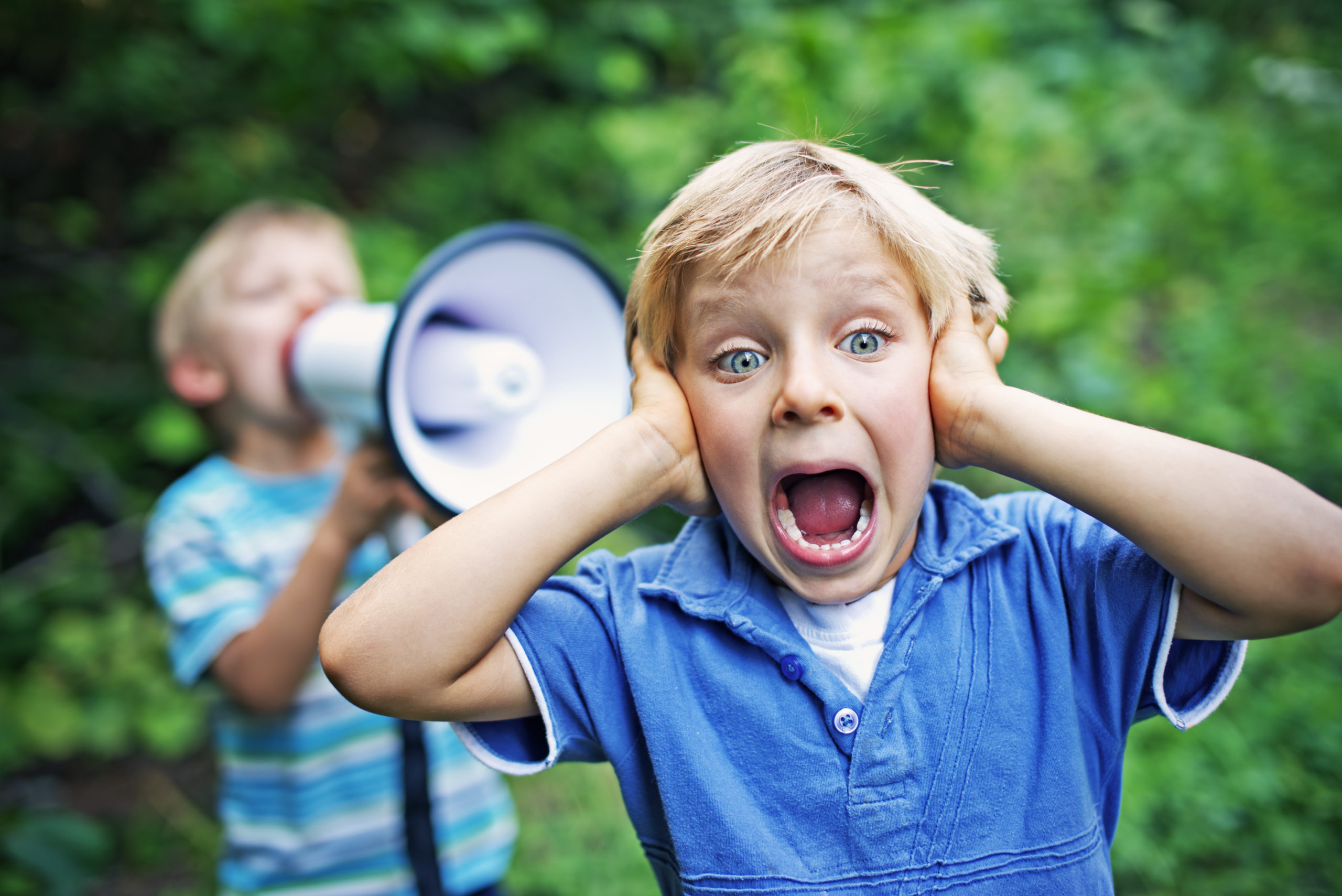Loud Noise May Be Hurting Your Health

The roar of a plane overhead.
The clanging of a fire alarm.
The rumble of a train as it speeds on its tracks.
The hum and honk of highway traffic.
In 21st Century America, this is the background music of our lives. Sometimes we hardly notice the clamor, complaining only when the pesky neighbors’ music makes a shared wall vibrate or an earth-shattering blast from a construction site startles us. The wrong kind of noise, however, is a public health menace and healthcare professionals, from audiologists to cardiologists, are trying to get the word out: Loud noise hurts us in myriad ways and we may not even realize it.
A growing body of evidence shows that all that racket, especially above a certain level, adversely affects both our physical and mental well-being. It has been linked to poor heart and cardiovascular outcomes, sleeplessness, hypertension, learning difficulties and, of course, hearing loss, according to numerous studies examined in a scholarly article, “Auditory and non-auditory effects of noise on health,” published in The Lancet in 2014 and carried online by the U.S. National Library of Medicine.
“Noise itself is a stressor,” says Dr. Victoria Ledon, an audiologist for the University of Miami Health System. “As more and more people are exposed to chronic noise pollution, we’re finding out how it’s possibly affecting the aspects of our health.”
For years, studies of elevated workplace noise, published in various journals including the Journal Archives of Environmental Health, revealed not only hearing impairment but also hypertension, ischemic heart disease, and sleep disturbance when workers were exposed to potentially harmful noise levels. Immune system changes and birth defects were also blamed on noise exposures. One study, cited by the European Agency for Safety and Health at Work, connected noise-induced stress to higher workplace accident rates as well as aggression and other anti-social behaviors.
Noise pollution: a public health threat
But noise is not only found in the workplace. It is also in our city streets and part of our everyday lives. While workplace noise is managed by regulatory bodies, environmental noise is managed, in little ways, by the average person. Whether it’s the once-a-year super-loud concert we attend or the constant jackhammering of construction next door, millions of us are exposed to potentially detrimental noise levels. (About one in five people are exposed to loud sounds outside of work, according to a 2017 report in The Laryngoscope.)
No wonder a variety of both international and national organizations, including the World Health Organization, the American Speech-Language-Hearing Association and the U.S. Census Bureau, have publicly announced that noise pollution is “a real and present danger,” perhaps second only to air pollution in its adverse effects on public health. And though not harmful, level background noises such as traffic noise or the noise of machinery humming, what is commonly referred to as noise pollution, can be annoying and bothersome.
One non-profit, Noise Free America: a Coalition to Promote Quiet, aims to reduce noise in our communities by raising awareness of the negative effects of noise. Another, the Center for Hearing Communication (CHC), has been sponsoring International Noise Awareness Day on the last Wednesday of April, which falls on April 25 this year. The CHC hosts activities, including free screenings and town hall meetings, that focus on the dangers of noise but also on the ways to reduce it, such as using ear protection and lobbying for noise control.
Excessive noise leads to hearing loss
But is the attention on hazardous noise levels and environmental noise pollution working? “In workplaces with potentially hazardous noise levels, employers and employees are better informed about the risks and how to prevent damage to our hearing, through wearing ear muffs or ear plugs, for example.” But Dr. Ledon acknowledges, “Sometimes these employees are not always compliant. Sometimes an employee may not know that a noise exposure is going to happen while on the job, such as a police officer suddenly exposed to gun fire.”
As many as 26 million Americans have high frequency hearing loss likely caused by exposure to excessive noise, reports the National Institute on Deafness and Other Communication Disorders (NIDCD). Almost two-thirds of people who are around loud noises during recreational activities never used any hearing protection nor did one-third of those in noisy workplaces, according to researchers who examined 2014 survey data representing 240 million people.
In some cases, hearing loss is irreversible — and it can happen fast. Damage to the ear depends on two factors, the decibel (dB) level of the sound and how long of time the exposure occurred. With certain exposures to noise, we can begin to see effects on the hair cells inside the ear which send sound signals to our auditory nerve and then up to the brain. According to the Occupational Safety and Health Administration (OSHA), we can safely listen to something at a volume of 85 dB for up to 8 hours, and for every 5 dB above 85 dB, the permissible exposure time cuts in half.
Many everyday sounds can thus potentially affect our hearing. A power mower, clocking in at about 95 dB, can cause damage in 2 hours time, and a 115 dB leaf blower or rock concert can cause irreversible damage to our ears in less than 10 minutes. Physically distancing ourselves from this noise quickly diminishes the impact the noise can have on our ears.
It’s bad for your heart and mind, too
Now, a review recently published in the Journal of the American College of Cardiology concludes that noise appears to disrupt the body on the cellular level, leading to increases in heart disease risk factors. The review was conducted in response to the concern over environmental noise from road traffic and aircrafts. The authors speculate that noise induces a stress response, a fight-or-flight reaction that results in higher levels of the hormones cortisol and adrenaline, which lead to vascular damage. The evidence also suggests that noise, such as from transportation (for example cars and trains),leads to metabolic abnormalities and oxidative stress, which in turn causes disruptions in normal mechanisms of cellular signaling.
Environmental noise from airplanes seems to be particularly harmful. Aircraft noise around London’s Heathrow airport has been is associated with increased risks of hospital admission and death from stroke, coronary heart disease, and cardiovascular disease for people living in the nearby area, according to a study published in the British Medical Journal. Another study in Occupational & Environmental Medicine, which examined aircraft noise exposure over 15 years on people living near airports, reported that heart attack deaths increased when the noise was louder and endured over a longer period of time.
What’s more, dozens of other studies have linked noise to poorer reading comprehension and memory in school-age children in comparison to those not exposed. Research here in the U.S. and abroad, including one done by Cornell University in 1993, also shows that young children can develop speech difficulties when regularly exposed to high noise levels of noise.
This is how to protect yourself
While it’s nearly impossible to quiet the din of modern life, Dr. Ledon says there are steps people can take to limit the damage. In situations in which the noise is potentially hazardous, such as at concerts or when using power tools, always wear hearing protection. Lower the volume on your electronic gadgets listening devices, such as your iPhone, car radio, and TV. If you have noise in your neighborhood that is annoying, such as a neighbor’s dog barking in the backyard, try playing background noise in your house at a low volume to serve as a distracting ambient sound. Sound-proof your home if you live near loud highways, busy roads, train tracks or an airport. And advocate for public strategies that mitigate damaging noise, such as road barriers or screenings, sensible urban planning and reasonable noise restrictions.
“As an audiologist, it is important for me to educate people about how we can lessen the damage to our ears when around hazardous levels of noise,” Dr. Ledon concludes. “If there is one thing we can do to prevent noise-induced hearing loss, it is to protect your hearing. That’s what I always tell my patients.”

Ana Veciana-Suarez, Guest Columnist
Ana Veciana-Saurez is a regular contributor to the University of Miami Health System. She is a renowned journalist and author, who has worked at The Miami Herald, The Miami News and The Palm Beach Post. Visit her website at anavecianasuarez.com or follow @AnaVeciana on Twitter.
Tags: audiology, cardiology, cardiovascular disease, hearing loss, International Noise Awareness Day, Noise pollution, OSHA
